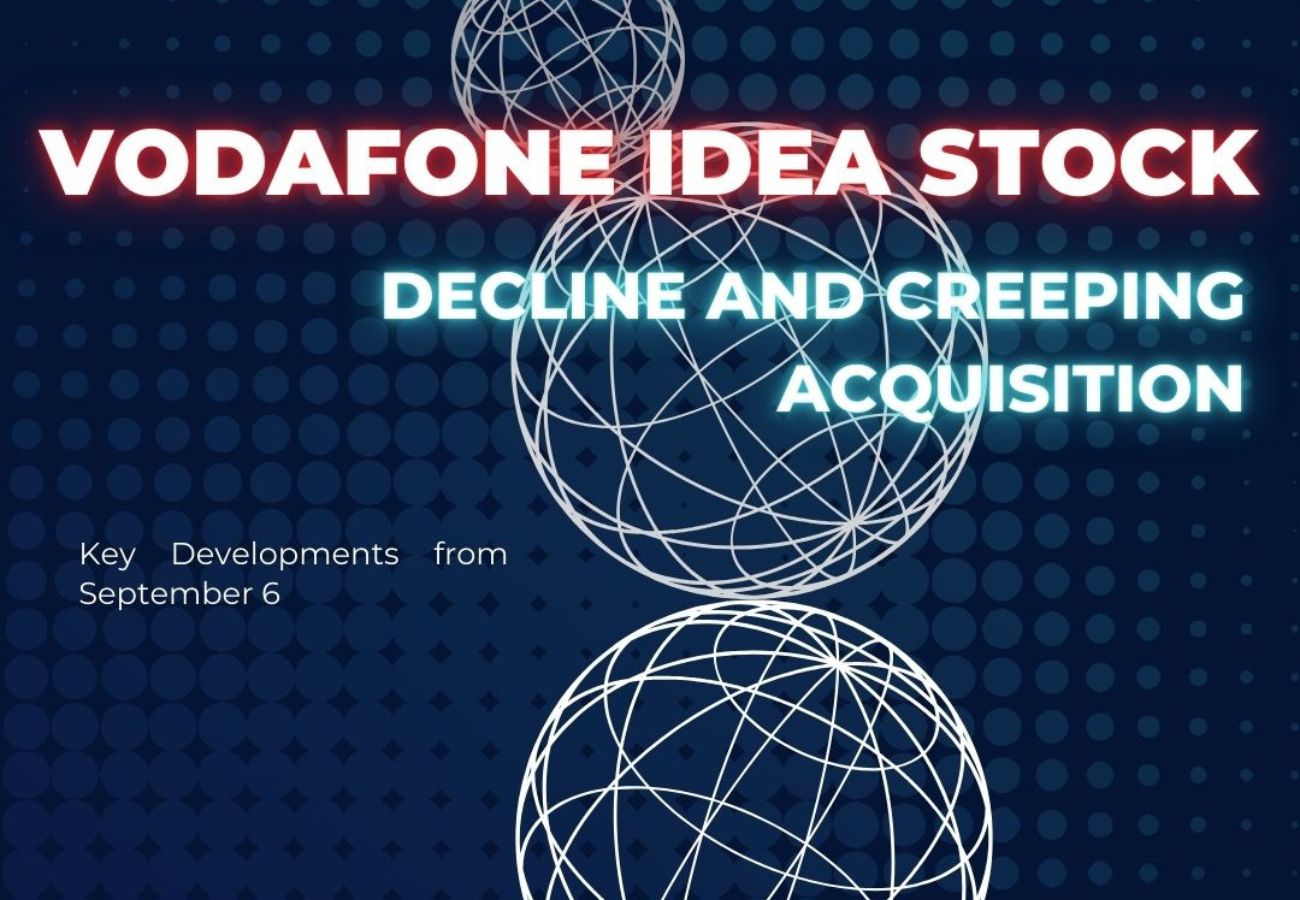Vodafone Idea Stock Decline and Creeping Acquisition: Key Developments from September 6
Introduction: Vodafone Idea, one of India’s major telecom players, found itself under immense pressure on September 6 as its stock plummeted over 11%, continuing a downward trend despite efforts to bolster investor confidence. The decline followed a “sell” rating from Goldman Sachs, which set a drastically low price target of ₹2.5, signaling a grim outlook for the company. Despite this, Aditya Birla Group chairman Kumar Mangalam Birla took a strategic step, acquiring a significant number of shares in the company. This raised questions about the future of Vodafone Idea, as well as the implications of Birla’s “creeping acquisition” strategy in the midst of mounting financial challenges.
Kumar Mangalam Birla’s Stake Purchase |
| According to official documents, Kumar Mangalam Birla acquired 1.86 crore shares of Vodafone Idea on September 6, while Pilani Investment, a company associated with the Aditya Birla Group, bought an additional 30 lakh shares on the same day. This move raised eyebrows among investors, especially considering the stock’s steep decline despite the influx of capital from such a prominent industry leader.
Birla’s purchase has been seen by some as a strategic move to increase his stake in the struggling telecom company, a process known as “Creeping Acquisition.” Under Indian market regulations, a creeping acquisition occurs when an individual or entity gradually increases their stake in a company without triggering mandatory takeover regulations. |
What Is a Creeping Acquisition? |
| A creeping acquisition allows a company or individual to incrementally increase their ownership stake over time. This method can be advantageous as it doesn’t always require the acquirer to make an open offer to the public, provided the increase remains below a specific threshold. In 2021, India’s Securities and Exchange Board (SEBI) increased the limit for creeping acquisitions from 5% to 10%, but this change only applies to preferential allotments of equity shares. For regular transfers or bulk deals, the limit still remains at 5% per financial year.
If a promoter group crosses this 5% threshold in a financial year, they are subject to SEBI’s takeover regulations. As of July 2023, Vodafone Idea’s promoter group, which includes Kumar Mangalam Birla, held a 37.17% stake in the company, with Pilani Investments having no prior stake. The acquisitions on September 6 could potentially signal Birla’s intention to slowly bolster his group’s influence over the company without immediately triggering a mandatory takeover bid. |
Challenges Facing Vodafone Idea |
| The pessimistic outlook for Vodafone Idea, as outlined by Goldman Sachs, is driven by several factors. The brokerage predicted a 300-basis-point decline in Vodafone Idea’s market share over the next 3 to 4 years, which would further weaken its position in the highly competitive telecom sector. Additionally, Vodafone Idea is set to face significant payments related to its adjusted gross revenue (AGR) dues and spectrum-related liabilities starting in FY 2026.
The combination of intense competition from other telecom giants like Reliance Jio and Bharti Airtel, regulatory liabilities, and a weak financial position has left Vodafone Idea in a precarious situation. Investors remain concerned about the company’s long-term survival, despite efforts by its promoter group to infuse capital and maintain confidence in the stock. |
Conclusion
September 6 marked a critical day for Vodafone Idea, as it experienced a significant stock price drop following a bleak assessment from Goldman Sachs. While Kumar Mangalam Birla’s acquisition of shares might indicate a show of confidence in the company’s future, it hasn’t been enough to stave off concerns about Vodafone Idea’s financial health and market prospects.
The creeping acquisition strategy employed by Birla may give the promoter group more control over the company in the long run. However, with Vodafone Idea facing mounting liabilities and increased competition, it remains to be seen whether this strategic move can help reverse the fortunes of the struggling telecom operator. Investors will continue to watch the developments closely, especially as the company’s payments come due and market share shifts over the coming years.
Donald Trump’s Vision for a Crypto-Fueled U.S. Economy: Key Takeaways from His New York Speech |


3 thoughts on “Vodafone Idea Stock Decline and Creeping Acquisition: Key Developments from September 6”